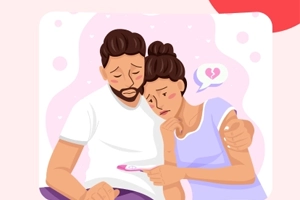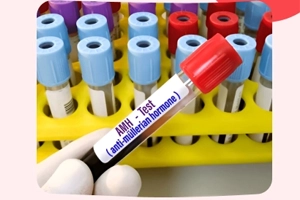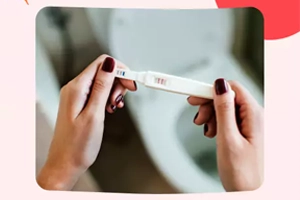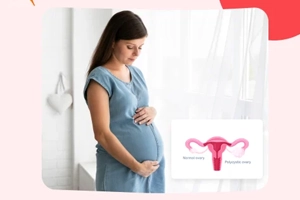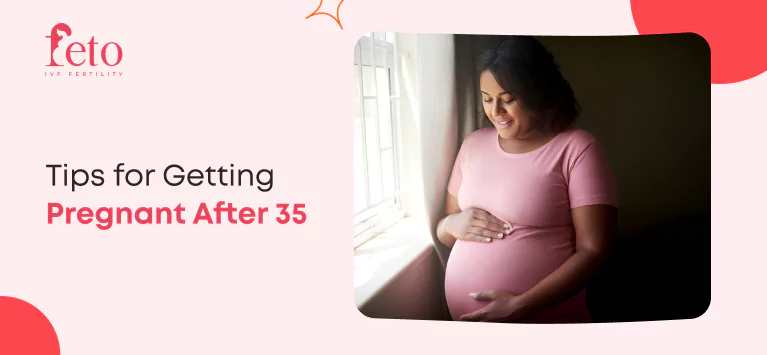
Tips for Getting Pregnant After 35
Trying to conceive after 35? You’re not alone. Many women today are choosing to have children later in life for personal, professional, or health reasons.
While age can impact fertility, the good news is that getting pregnant after 35 is entirely possible with the right approach, healthy habits, and medical guidance.
Why Age Matters in Fertility?
As a woman gets older, both the quality and number of her eggs gradually decrease. By age 35, fertility starts to decrease more noticeably. The chances of natural conception per cycle drop from about 25% in your 20s to around 15% after 35. In addition, the chances of miscarriage and chromosomal abnormalities rise with age.
However, many women successfully conceive and deliver healthy babies after 35. Understanding your body and preparing in advance can increase your chances significantly.
Get a Preconception Check-Up
Before you begin trying to conceive, schedule a visit with your gynecologist or a fertility specialist. A thorough check-up will:
- Assess your ovarian reserve ovarian reserve (egg count and quality).
- Screen for any reproductive health issues like fibroids or PCOS .
- Review your menstrual cycle and hormone levels.
- Help identify any health risks or conditions like thyroid imbalance or diabetes.
Early testing helps you make timely decisions if conception doesn’t happen as expected.
Track Ovulation Accurately
Knowing when you’re most fertile is crucial. Women over 35 may have shorter or irregular cycles, making ovulation harder to predict. Here’s how to track ovulation:
- Use ovulation predictor kits (OPKs).
- Monitor basal body temperature (BBT).
- Check for cervical mucus changes.
- Use fertility tracking apps for better accuracy.
Timing intercourse around ovulation (ideally 1–2 days before) can increase your chances of getting pregnant naturally after 35.
Maintain a Healthy Weight
Being either underweight or overweight can interfere with ovulation and hormone balance. Maintain a body mass index (BMI) within the healthy range of 18.5 to 24.9. Healthy weight helps regulate your cycle, supports hormonal health, and improves your chances of conception.
Simple steps to achieve a healthy weight:
- Eat a balanced, nutrient-dense diet.
- Limit processed foods and sugars.
- Exercise moderately for 30 minutes daily.
Eat Fertility-Boosting Foods
A fertility-friendly diet is rich in antioxidants, vitamins, and minerals that support reproductive health. Include:
- Leafy greens (folate)
- Berries (antioxidants)
- Whole grains (fiber and B vitamins)
- Nuts and seeds (omega-3s)
- Lean proteins (iron and zinc)
Avoid trans fats, excessive caffeine, and alcohol, as they may reduce fertility.
Take Prenatal Vitamins and Supplements
After the age of 35, your body may require additional support to get ready for pregnancy. Start taking:
- Folic acid (400–800 mcg daily)
- Vitamin D
- Coenzyme Q10 (CoQ10) – may improve egg quality
- Omega-3 fatty acids
- Iron – especially if you have heavy periods or anemia
Talk to your doctor before starting any supplements to prevent overuse or harmful interactions.
Stay Active, but Don’t Overdo It
Regular physical activity enhances blood flow, reduces stress, and supports hormonal balance. But over-exercising or doing high-intensity workouts daily can harm fertility.
Aim for:
- Yoga or walking
- Light cardio
- Strength training 2–3 times a week
Listen to your body and avoid overexertion.
Manage Stress Effectively
Stress affects ovulation and reproductive hormones. Women trying to conceive after 35 often feel additional pressure. Incorporate stress-relieving activities such as:
- Meditation or deep breathing
- Journaling
- Spending time in nature
- Acupuncture (shown to improve fertility)
A calm mind can significantly help your conception journey.
Limit Exposure to Toxins
Environmental toxins like pesticides, plastics (BPA), and household chemicals can disrupt hormonal balance and reduce fertility. Here’s what you can do:
- Choose organic foods when possible.
- Avoid microwaving food in plastic containers.
- Use non-toxic cleaning and skincare products.
- Reduce exposure to cigarette smoke and alcohol.
These small changes can support hormonal health and egg quality.
Consider Fertility Treatments if Needed
If you’ve been trying to conceive for six months without success, it’s a good idea to see a fertility specialist.
Women over 35 shouldn’t wait a full year before seeking help, as time is critical.
Fertility treatments include:
- Ovulation induction
- IUI (Intrauterine insemination)
- IVF (In vitro fertilization)
- Egg freezing (for when you’re not ready now but planning ahead.)
Early intervention improves success rates, especially with age-related fertility decline.
Stay Positive and Be Patient
Conceiving after 35 may take longer, but it’s not impossible. Be kind to yourself, stay informed, and lean on your partner or support system during the process. Mental and emotional wellness play a major role in your overall fertility journey.
Final Thoughts
Getting pregnant after 35 requires more awareness and effort, but it’s absolutely achievable. With the right strategies—healthy lifestyle, fertility tracking, medical support, and mental well-being—you can improve your chances of conceiving naturally and delivering a healthy baby.
If you’re over 35 and trying to conceive, start by focusing on what you can control. Make your health a priority, and don’t hesitate to seek guidance from professionals early in the process.






